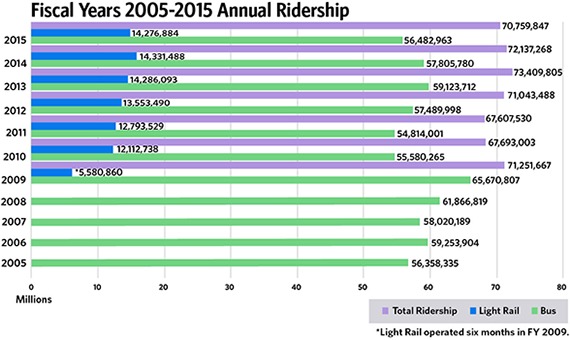I was doing a radio interview and was reminded of this article I wrote in response to the famous Obama "Life of Julia" piece extolling the virtues of government in our lives. Since I spend so much of my time in the last few years finding ways to comply with ever more onerous regulations (rather than actually improving my business or customer service) I thought I would offer a different view. When I argue that free market proponents need to talk about taxes less and regulation more, this is what I am thinking about.
Since it has been several years since this went up at Forbes, I want to reprint it here in full:
Last week, the Obama Administration released a campaign piece about the life of Julia, showing how Julia benefited from taxpayer largess and oversight by the state at many points in her life. But the campaign piece was incomplete, and missed the part where Julia attempted to start her own business. Long before she started a web business out of her home, she tried to start a retail business.
Julia always liked the outdoors — remember that taxpayers helped her retire from productive work so she could work in a community garden. Well, as she was growing up, Julia loved to camp outdoors. For years she camped at a lovely lakefront public campground until it was forced to close — unfortunately, the government agency that ran the campground had operating costs that were so much higher than the fees charged to visitors that they couldn’t afford to keep it open any longer.
But Julia had an idea. After forming a corporation (a surprisingly easy task with lots of private companies competing to help one complete the proper legal steps), Julia approached the public parks agency about the possibility of her leasing the campground and reopening it under private management. She was surprised, though, at the tremendous opposition she encountered in the agency. Despite the fact that she was willing to adhere to operating standards and restrictions set by the public agency, she initially encountered tremendous resistance. She had assumed a parks and recreation agency would welcome the opportunity to reopen a park to the public, be she had underestimated the near universal opposition to private enterprise she found among the agency’s employees.
Eventually, though, with a lot of hard work and some help from a local TV station that rallied park users to her cause, the public agency agreed to a one-year pilot of her idea.
So the hard part was behind her, right? Probably not. In fact, Julia expected entrepreneurship to be tough. She was worried about the challenges of hiring good employees, getting financing for new equipment, and marketing her new campground. As it turned out, though, she would have little time for any of these concerns.
Before she could even think about hiring employees, she had to get a federal tax ID number, or FEIN, for her company. This identification number allows her to collect and pay her employee’s Social Security and Medicare taxes, as well as withhold and submit the Federal income tax obligations of her employees. In addition to these reports, she also learned that she had to file a separate report each quarter on her employee’s earnings in order to file and pay Federal unemployment taxes.
But her state has its own income tax, so she had to register for a separate ID number to report and pay employee state tax withholding, and then had to fill out yet another registration for another ID number to file another regular report to pay state unemployment taxes. Her state also has a public rather than private workers compensation system, so she registered for another number so she could fill out another monthly report to pay state workers compensation premiums.
And of course, since Julia intends to make retail sales, she needed to register with the state (yet another number and report) to collect and pay sales tax — though her state calls it a “privilege” tax rather than a sales tax because, as the state’s web site explains, conducting commerce is a privilege that can only be exercised with the state’s permission. She is momentarily encouraged when she finds out her state sales tax does not apply to camping, only to eventually find out this is because the state has a completely separate system (yes, another registration number and monthly report) for collecting and paying lodging taxes. So sales in her campground store will be at one tax rate on one report while campsite rentals in the same park will pay a different tax rate on a different report. Which seems overly complicated until she finds out her county also has a separate sales and lodging tax that are added to the state’s, and must be reported separately under a different registration number to the County. Thank goodness she is not in a city, or she could easily have had to file and pay three separate sales taxes and three separate lodging taxes (city, county, state). If she ever decides to rent boats on the lake, she will have to get another state registration to pay a special state boat rental tax, the percentage of which varies based on whether a boat is motorized or human-powered.
Whew. Julia thought she had finally tracked down all her tax registrations, but she was wrong. Her corporation is an S-corporation, so she files and pays her corporate income taxes on her individual return. But it turns out her state also has a franchise tax on corporations she must pay separately, based on her total revenues. In addition, it turns out that each year she must produce a complete list of all her businesses personal property, from lawn mowers to computers to radios to chairs, and submit this list to the County so she can pay property taxes on all these items. Unfortunately, in her state the property tax bill does not end there. When the public agency was running the campground, the county was not allowed to charge another government agency property taxes on the assets. The agency still owns the property — it is just leasing it to Julia so she can operate it — but the county has a mechanism called the Leasehold Excise Tax to make Julia pay the property taxes the agency doesn’t have to pay.
So twelve registration numbers and 12 monthly/quarterly/yearly reports later, surely Julia has fulfilled all her obligations to the government. Unfortunately, no, because she has not even begun to address licensing issues. To begin, the County will require that she get an occupancy permit for her campground, which must be renewed annually. This seemed surprisingly easy, until someone from the County noticed she had removed an old rotting wooden deck from the back of her store that had been a safety issue and an eyesore. It turns out she was in violation of County law because she did not get a removal permit first. She was required to get a permit retroactively, which eventually required payments to seven different County agencies and at one point required, for a reason she never understood, the collection and testing of a soil sample.
Because she will be selling packaged foods in her store (e.g. chips and pop-tarts), she also has to get a health department license and inspection. She had originally intended to keep some fresh-brewed coffee for customers in the store, but it turned out that required a higher-level health license and eight hours training in food handling. She might have been willing to pursue it, but the inspector told her that to make coffee, she would need to install a three-basin stainless steel wash-up sink plus a separate mop sink in her store, and she decided that coffee would have to wait.
Once through the general health licensing process, she then needed to obtain licenses for individual products. She wanted to sell aspirin, so she had to get a state over-the counter drug sale license. She knew that customers would want cigarettes, so she had to obtain a tobacco sales license. One day as she was setting up, a state inspector noticed she had a carton of eggs in her cooler, and notified her she needed a state license to sell eggs (as Dave Barry would say, I am not making this up). And then there was the problem of beer.
She knew that selling beer would require an alcohol license. In addition to requiring a long, tedious application, getting such a license required that she be finger-printed at the local Sheriff’s office, that she measure the distance in feet to the nearest three stores that sold alcohol and the nearest school and church, and that she attend eight hours of special alcohol sales training. The whole application process took many months — at one point her application was kicked back to her because she included a computer CAD drawing of the store when the instructions require the drawing be made by hand (I repeat, I am not making this up). She finally thought she was home-free, when she found her state requires a public hearing as a final step to determine if the market really needs another liquor retailer. At that hearing, several large, powerful local liquor businesses testified that the market was already saturated and that they already had plenty of competition, thank you very much, and her application was denied.
By the time Julia called it quits, she still had multiple applications pending. She hadn’t yet figured out how to create the stormwater runnoff management plan needed for her stormwater permit. She hadn’t been able to satisfy the state air resources board in permitting her small above-ground fuel tank. And she was still going back and forth with the state department of water resources for her drinking water sampling and testing plan.
Julia gave up her dream of working outdoors, and spent the rest of her life closeted in a room staring at a computer screen. It wasn’t what she really wanted to do, but web design does not require a license (yet) and she could avoid the hassles involved with having employees. The public never got its park back, and the campground still sits closed, the facilities falling apart from neglect. But a few months after Julia gave up, a park agency employee wrote a scathing editorial in the local paper, citing Julia’s failure as a great example of how private enterprise has failed and the need for public agencies to do more.
Julia’s experience is a composite, but is based entirely on my personal, real experiences. Every tax, registration, report, inspection, and license mentioned is a real one my company has had to obtain at some point in our expansion to new states. The only difference is in the story of the liquor license, where after my local competitors initially blocked the license I had the wherewithal to fight and eventually get it issued.









